On 5 May 2025, the Ministry of Public Health, Hygiene, and Social Welfare of the Democratic Republic of the Congo declared a cholera outbreak, following laboratory confirmation of cases in multiple provinces of the country.
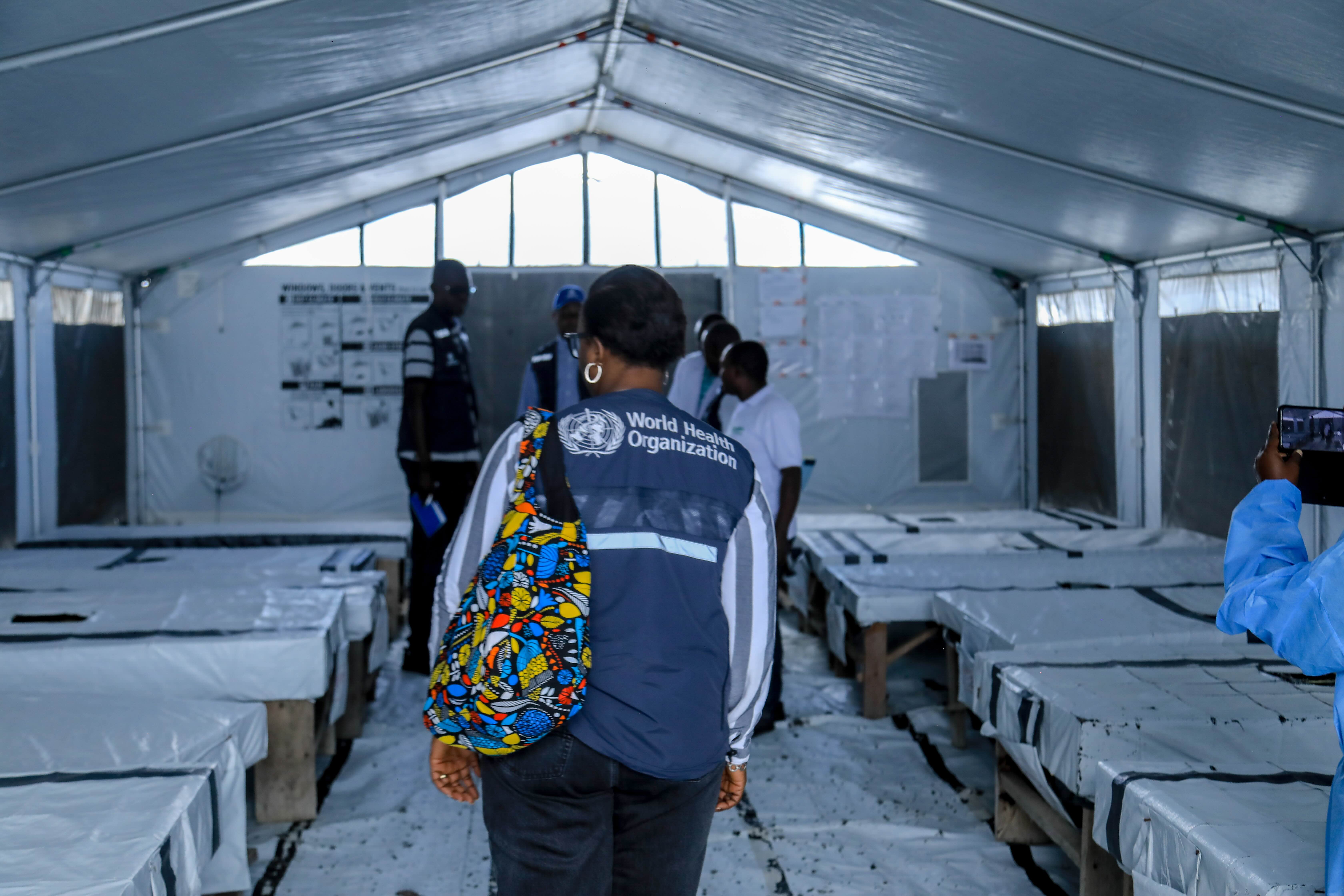 A team of WHO experts visits the Cholera Treatment Unit in Buhimba, located in the Goma Health Zone. The visit reflects WHO’s ongoing commitment to strengthening the cholera response in conflict-affected regions of North Kivu, Democratic Republic of the Congo Credit: WHO/Daniel Paluku
A team of WHO experts visits the Cholera Treatment Unit in Buhimba, located in the Goma Health Zone. The visit reflects WHO’s ongoing commitment to strengthening the cholera response in conflict-affected regions of North Kivu, Democratic Republic of the Congo Credit: WHO/Daniel Paluku
From 1 January to 8 June 2025, the Democratic Republic of the Congo reported 29 392 suspected cholera cases and 620 deaths. The mortality rate of 2% was an indication of gaps in reaching cholera patients with early and adequate treatment. The provinces of Tanganyika, Haut-Katanga, Sud-Kivu, Maniema, and Tshopo are among the most affected. Severe flooding in eastern provinces and high population mobility along the Congo River are accelerating the spread of the disease, while ongoing humanitarian crises and other outbreaks, such as mpox and measles, are straining national health capacities.
In response to the cholera outbreak, the Government of the Democratic Republic of the Congo, with support from WHO and other partners, activated the Incident Management System to lead and coordinate the national response. The primary objective of the response is to interrupt transmission and reduce cholera deaths. Rapid response teams have been deployed to affected areas to support local health authorities with case detection and investigation, clinical management, water and sanitation activities, and laboratory diagnosis.
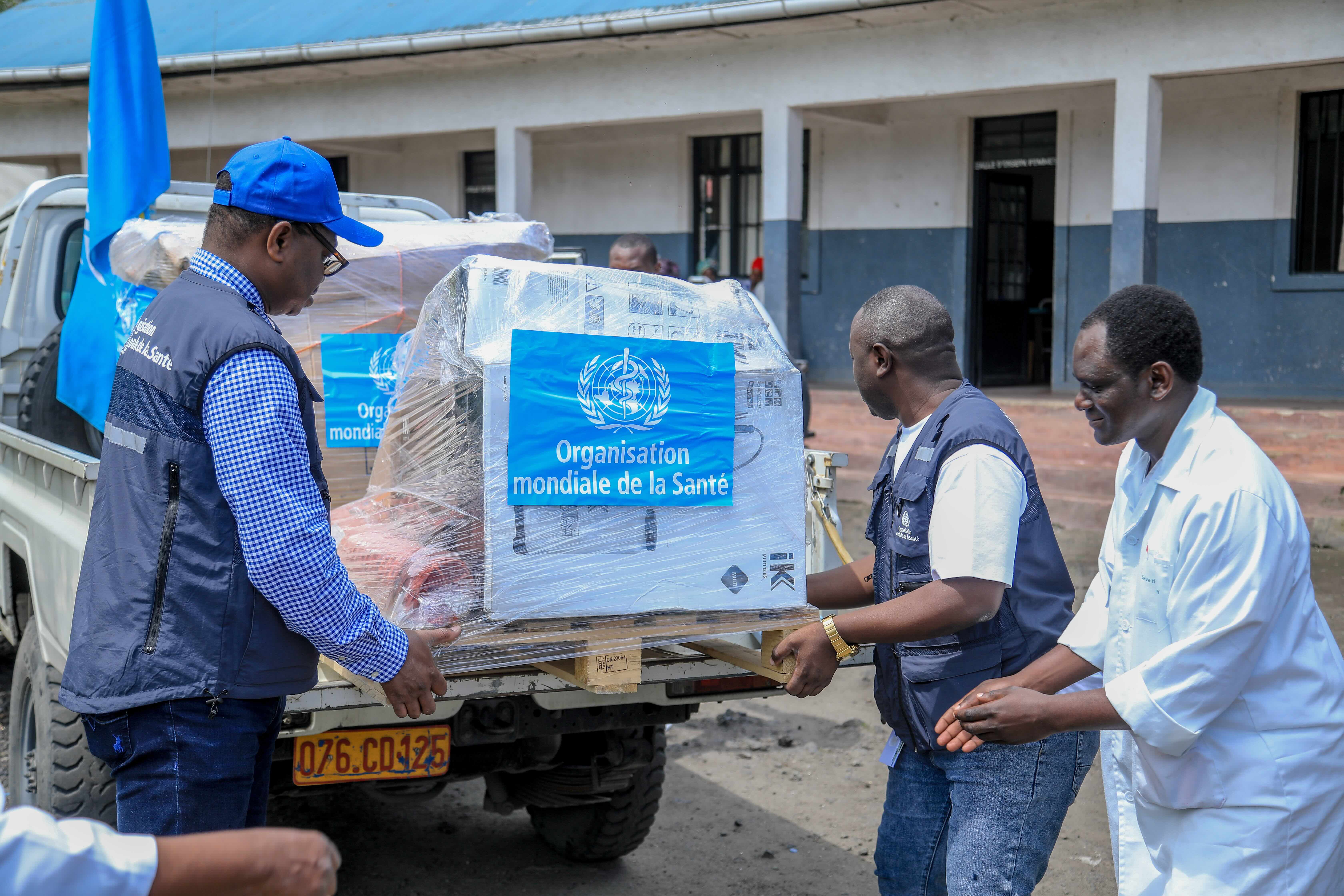 The WHO team delivers treatment kits to the Buhimba Cholera Treatment Unit in Goma Health Zone, supporting the ongoing response to the cholera outbreak. Credit: WHO/Daniel Paluku
The WHO team delivers treatment kits to the Buhimba Cholera Treatment Unit in Goma Health Zone, supporting the ongoing response to the cholera outbreak. Credit: WHO/Daniel Paluku
To support the national outbreak response, WHO is mobilizing resources for the most affected. This includes the deployment of emergency inter-agency kits to treat over 10 000 people, supplemented by eight cholera kits for the treatment of an additional 800 patients in North Kivu province. WHO also deployed cholera supplies in Kinshasa, Haut Katanga, Tanganyika, South Kivu, Kongo central, Tshopo and Maniema Provinces. These efforts are further strengthened by targeted interventions, including the provision of emergency beds to health facilities in Kinshasa (Pakadjuma) and Kongo Central, as well as the provision of free medical care in Muanda.
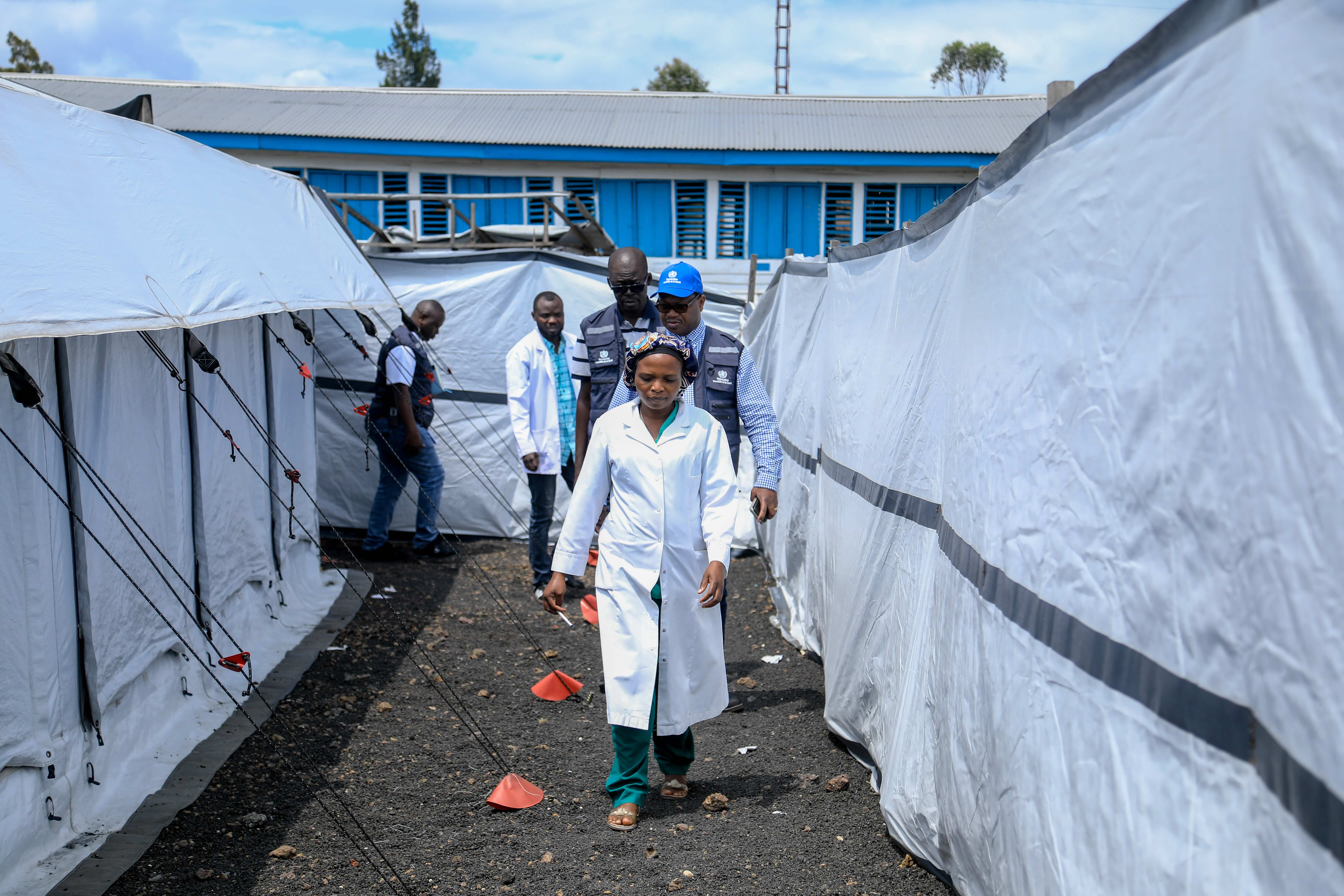 Ms Joyce Kabugho, manager of the Buhimba Cholera Treatment Unit, joins the WHO team during a visit to the CTU in Goma Health Zone to assess ongoing response efforts. Goma, Democratic Republic of the Congo Credit: WHO/Daniel Paluku
Ms Joyce Kabugho, manager of the Buhimba Cholera Treatment Unit, joins the WHO team during a visit to the CTU in Goma Health Zone to assess ongoing response efforts. Goma, Democratic Republic of the Congo Credit: WHO/Daniel Paluku
In North Kivu, WHO has delivered treatment kits to Buhimba Cholera Treatment Unit (CTU) in the Goma Health Zone and Mugunga CTU in the Karisimbi Health Zone. Field teams, including risk communication and community engagement specialists, have conducted assessments to evaluate and strengthen the capacity of cholera facilities to provide timely and effective patient care.
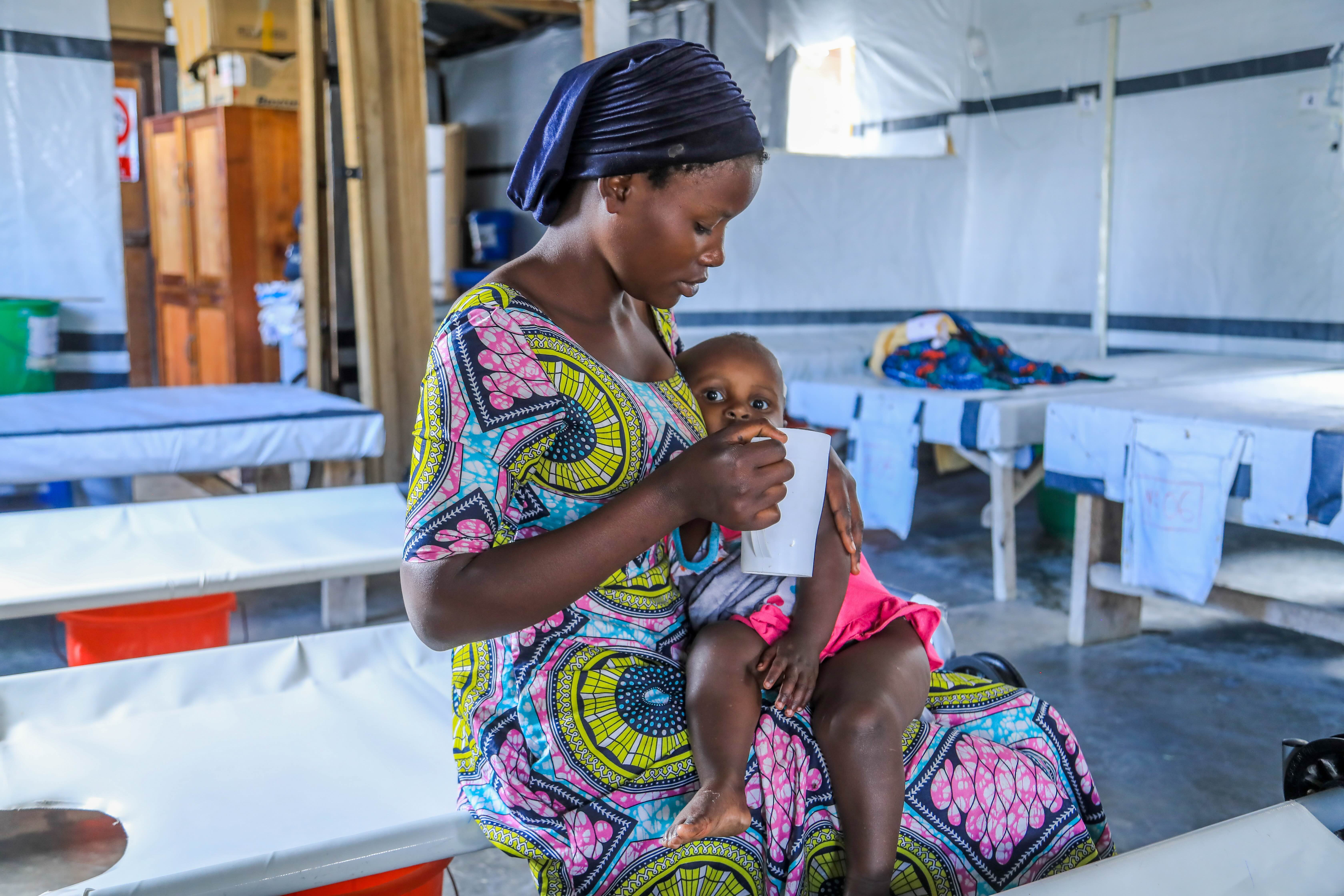 A mother tends to her child receiving care for cholera at the Mugunga Cholera Treatment Unit in Karisimbi Health Zone. WHO extends its gratitude to UNCERF for the vital support in the fight against cholera in North Kivu. Credit: WHO/Daniel Paluku
A mother tends to her child receiving care for cholera at the Mugunga Cholera Treatment Unit in Karisimbi Health Zone. WHO extends its gratitude to UNCERF for the vital support in the fight against cholera in North Kivu. Credit: WHO/Daniel Paluku
“Despite the observed decrease in cases in some areas, the cholera situation in North Kivu remains deeply concerning here. Response efforts are severely hindered by ongoing insecurity, which restricts access to the most vulnerable populations”, said Ms Joyce Kabugho, manager of the Buhimba CTU in North Kivu.
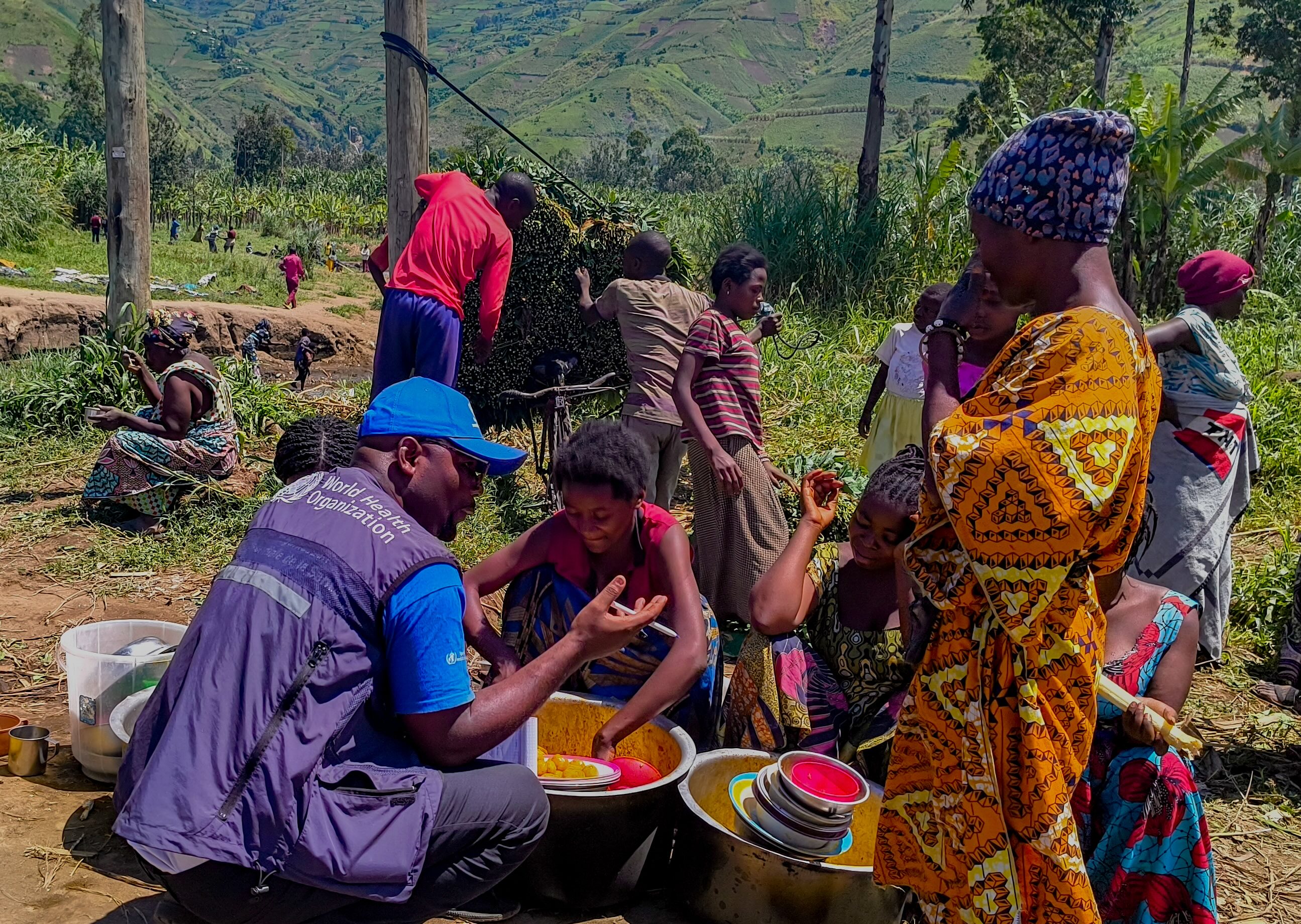 Elvis Mulamba from WHO’s Risk Communication and Community Engagement team raises awareness among female vendors in the Shasha area, in Kirotshe health zone, promoting hygiene and handwashing practices as part of the cholera outbreak response. Credit: WHO
Elvis Mulamba from WHO’s Risk Communication and Community Engagement team raises awareness among female vendors in the Shasha area, in Kirotshe health zone, promoting hygiene and handwashing practices as part of the cholera outbreak response. Credit: WHO
Ntakakubwine Eugénie, 52, mother of 10, is more than a Community Outreach Worker. For 10 years, she has been a trusted figure, a reference point, and a guardian of public health in the Mabanga area, in the Goma Health Zone. She works at the Community Oral Rehydration Point at the Alleluia Buhimba Health Center. Every day, her home becomes a relief centre.
WHO is also strengthening the capacity of the Ministry of Public Health, Hygiene, and Social Welfare by deploying 7275 community health workers (CHWs) across 13 provinces, including Kinshasa, for an initial period of three months. These CHWs play a critical role in community engagement by raising awareness about cholera prevention, distributing oral rehydration salts (ORS), and facilitating timely access to treatment for affected individuals.
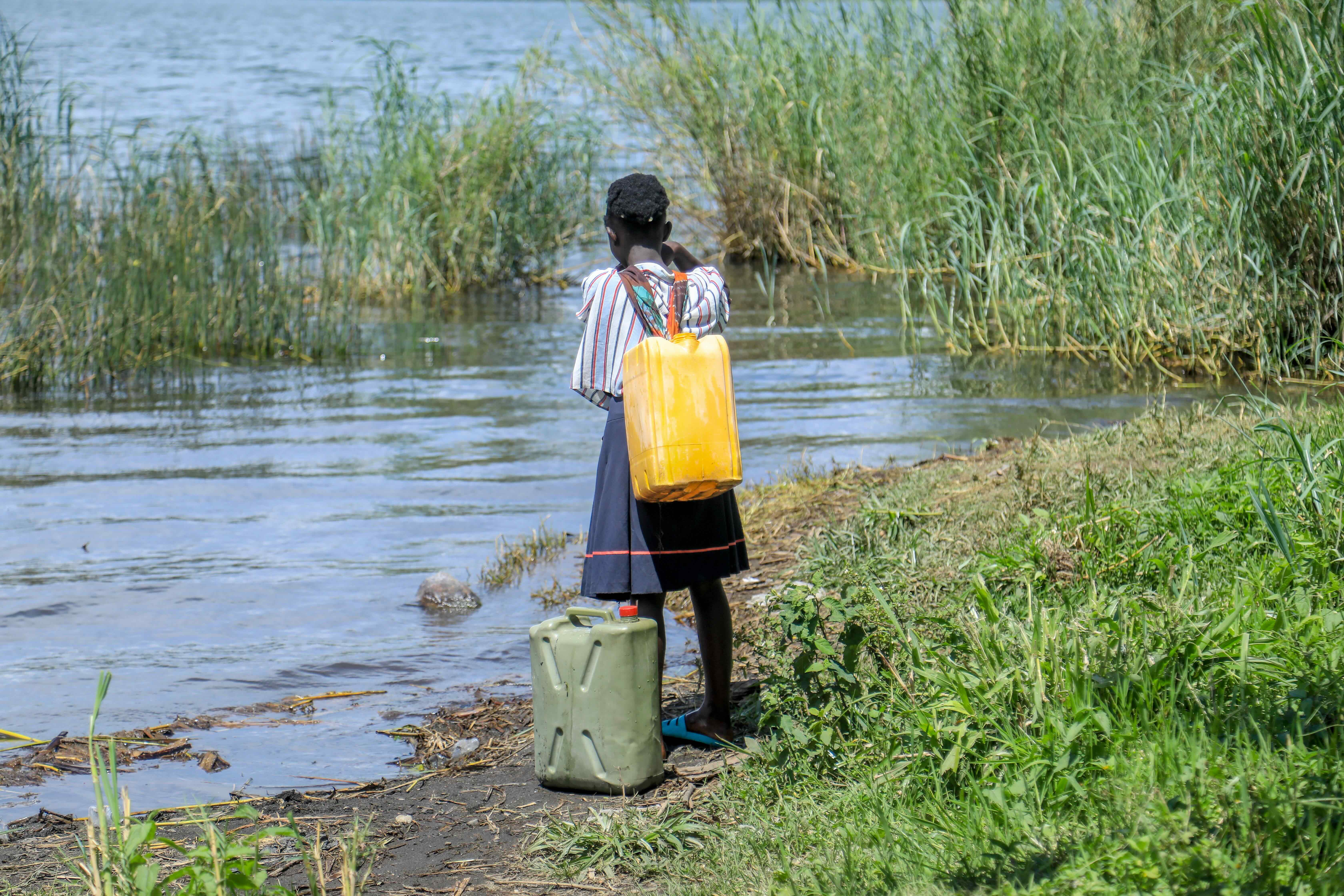 A young girl prepares to collect water from Lake Kivu – an essential daily task that carries hidden danger. In North Kivu, where conflict continues to displace communities, unsafe water sources like this remain a major driver of cholera transmission. WHO warns that without access to clean water, the most vulnerable continue to face life-threatening risks. Credit: WHO/Daniel Paluku
A young girl prepares to collect water from Lake Kivu – an essential daily task that carries hidden danger. In North Kivu, where conflict continues to displace communities, unsafe water sources like this remain a major driver of cholera transmission. WHO warns that without access to clean water, the most vulnerable continue to face life-threatening risks. Credit: WHO/Daniel Paluku
Across North Kivu and other affected zones, deteriorating WASH conditions – exacerbated by recent armed clashes and population displacement – are increasing the risk of cholera spread.
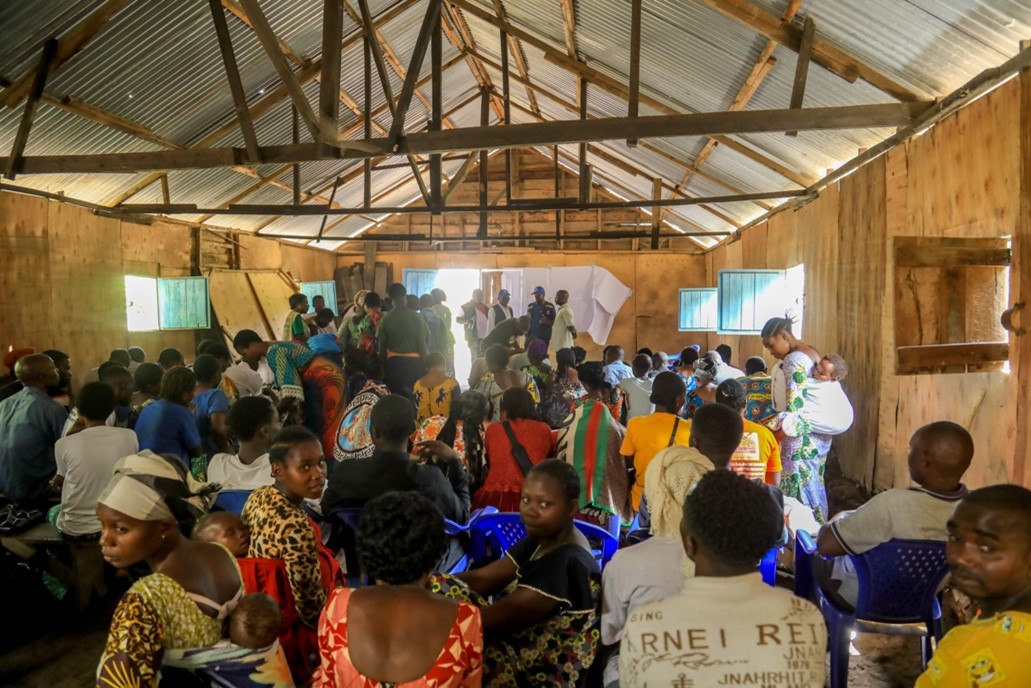 WHO’s Risk Communication and Community Engagement team raises awareness in the Shasha area, in Kirotshe health zone, promoting hygiene and handwashing practices as part of the cholera outbreak response. Credit: WHO/ Elvis Mulamba
WHO’s Risk Communication and Community Engagement team raises awareness in the Shasha area, in Kirotshe health zone, promoting hygiene and handwashing practices as part of the cholera outbreak response. Credit: WHO/ Elvis Mulamba
The country is also set to begin a reactive oral cholera vaccination campaign targeting 11 health zones across four provinces: Haut-Katanga, Tanganyika, Maniema, and Tshopo. Nearly 3 million vaccine doses have been received from the International Coordinating Group (ICG) on Vaccine Provision, with the campaign launch date to be announced soon.
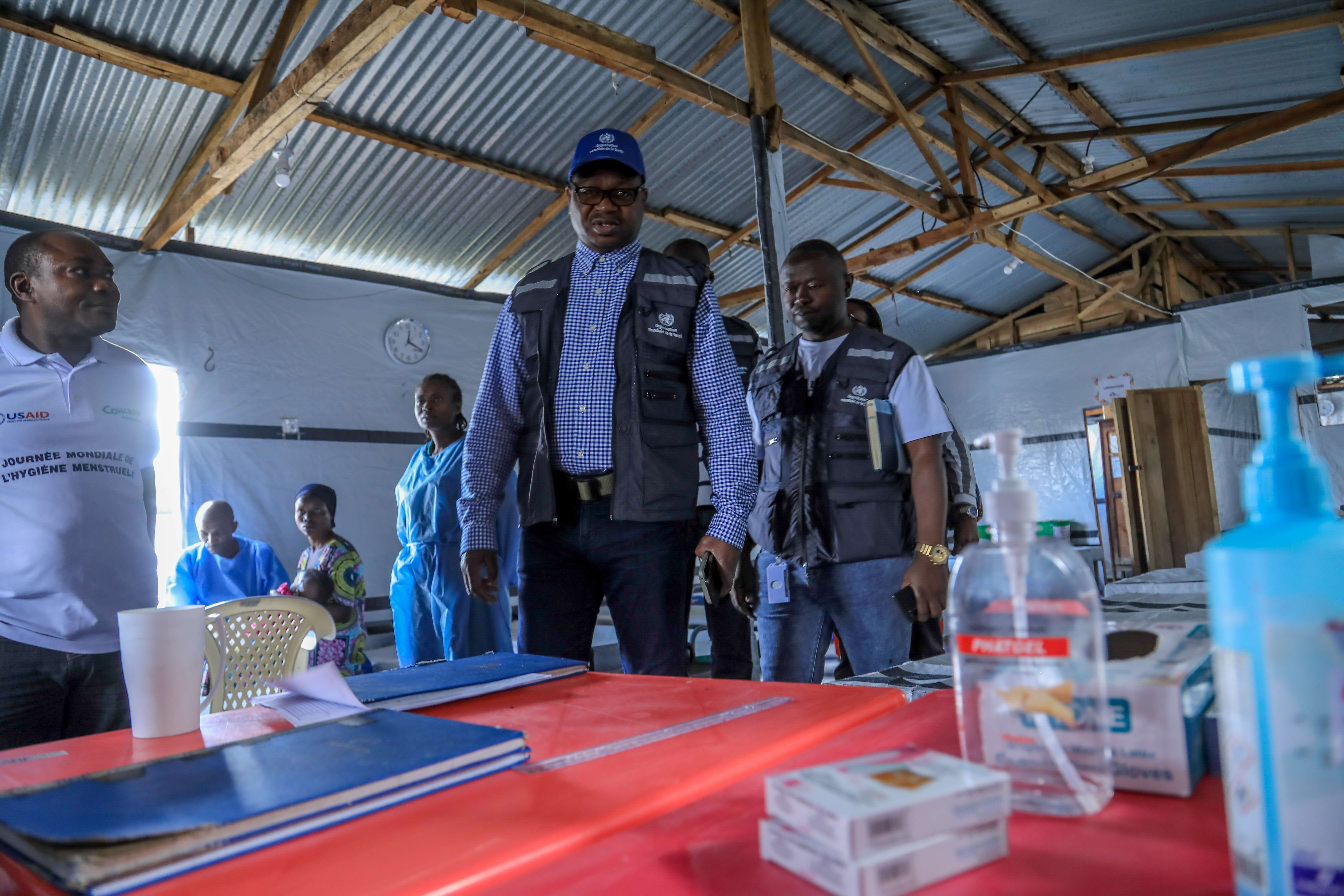 Dr Léopold Ouédraogo, WHO’s Multi-Crisis Response Incident Manager in North Kivu, leads a team visit to the second Cholera Treatment Unit in Mugunga, located in the Karisimbi Health Zone of Goma. The visit underscores WHO’s commitment to strengthening cholera response in conflict-affected areas. Mugunga, Karisimbi Health Zone, Goma, DRC. Credit: WHO/Daniel Paluku
Dr Léopold Ouédraogo, WHO’s Multi-Crisis Response Incident Manager in North Kivu, leads a team visit to the second Cholera Treatment Unit in Mugunga, located in the Karisimbi Health Zone of Goma. The visit underscores WHO’s commitment to strengthening cholera response in conflict-affected areas. Mugunga, Karisimbi Health Zone, Goma, DRC. Credit: WHO/Daniel Paluku
“WHO continues to work closely with the Ministry of Health and partners to contain the outbreak, strengthen surveillance, and ensure access to life-saving care. However, sustained international support is essential to prevent further loss of life and build long-term resilience”, says Dr Boureima Hama Sambo, WHO Representative for the Democratic Republic of the Congo.
